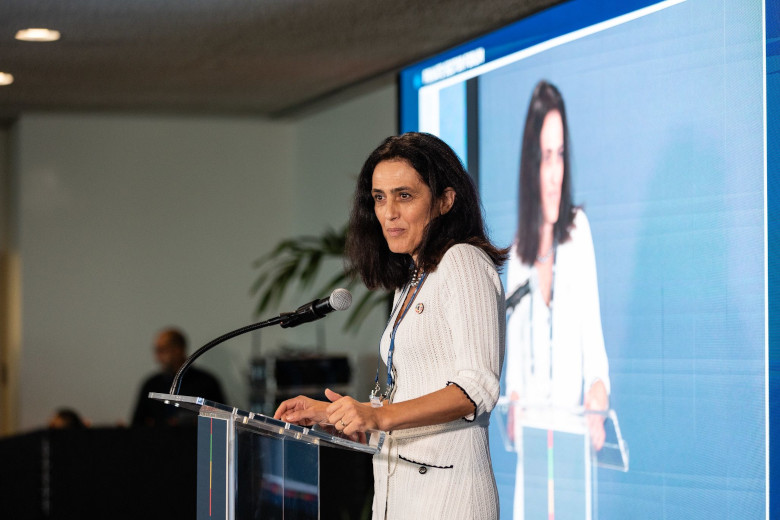
Novozymes was represented by its CEO, Ester Baiget, at the United Nations General Assembly in New York. “At Novozymes, we took the request from the Secretary-General to raise our commitments to the SDGs very seriously. We have made substantial progress, but there are still roadblocks on the path, and we ask you to offer the willingness to support and drive the change. I am absolutely convinced, working together, we can move forward faster to a sustainable future ahead of us,” she said at the meeting.
Novozymes was one of the first companies to align its business to the UN Sustainable Development Goals, she highlighted in a post on LinkedIn, offering an overview of the company’s sustainable actions within and beyond its own walls:
More than 90% of the company’s revenues come from environment-friendly solutions. “We have committed to net zero across scopes 1, 2 and 3 and reduced emissions by 63% since 2018. And we work with customers, suppliers, and organizations such as the United Nations Global Compact to raise commitments to the SDGs across the private sector,” she writes.
Novozymes is facing hurdles in this endeavor, which cannot be singlehandedly solved. This is why, Baiget shares a plea to world leaders, policymakers and decision-makers “To support a green and just transition on three critical areas:
- Phase out fossil fuel subsidies to ensure equal competition – Last year, coal, oil, and natural gas received USD 7 TN (7% of global GDP)
- Remove regulatory barriers to green solutions – Outdated regulation slows the penetration of new, sustainable innovations such as biosolutions
- Harmonize ESG reporting standards – to make it clear how companies perform on climate action.”
After attending the United Nations General Assembly in New York City, Novozymes’ CEO traveled to Washington D.C. to meet with U.S. government officials and industry leaders, discussing how to build on the success of the Inflation Reduction Act and harness the power of biosolutions.
“Biosolutions can help transform industries such as agriculture, energy, and food, supporting the U.S. government’s ambitions to reduce CO2 emissions by 50% by 2030 while also paving the way for job creation and sustainable growth,” Novozymes highlights.
Photo: Novozymes LinkedIn


